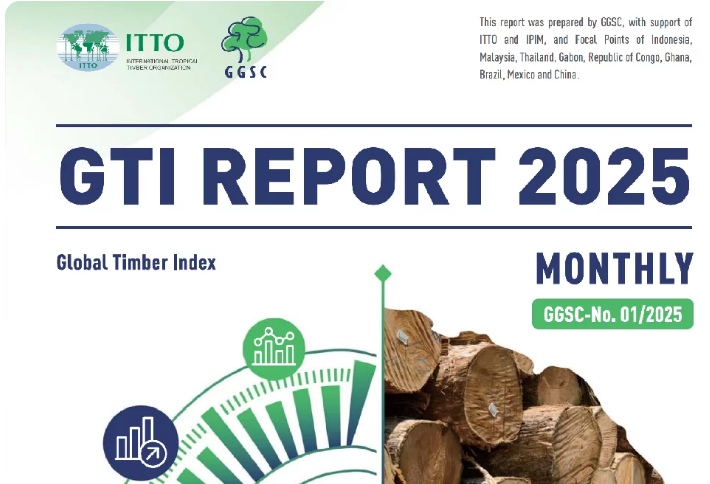
According the latest report of the global timber
index(GTI), the encouraging development last month, with
positive signs of a turnaround seen in several countries.
Global Timber Index (GTI) pilot countries, including Thailand
and Ghana, have reported growth for February 2025.
¡°The GTI for Thailand stood at 47.1 per cent, with harvesting,
production, and domestic orders all showing positive signs
despite a decline in export orders.
¡°The GTI for Ghana was at 53.3 per cent, above the critical
value of 50 per cent for the second consecutive month and
signalling an overall improvement in its timber sector.
¡°In Ghana, the total volume of existing orders was relatively
sufficient, providing short-term support for production and
business activities in the sector,¡± according to the GTI Index¡¯s
overview for February.
In Malaysia, the GTI rose by 0.5 percentage points to 20.6 per
cent month-on-month, indicating an easing in the downward trends
in the timber sector.
Also reporting increases on GTIs from January were Mexico (47.8
per cent), Republic of Congo (45.6 per cent), China (44.1 per
cent), Brazil (43.2 per cent), and Gabon (34.7 per cent).
The GTI is a survey in nine pilot countries that covers timber
harvesting, trade, and manufacturing, including production,
orders, imports and exports, employees, inventory, raw material
prices, and other business indicators.
The index reflects the monthly prosperity trend of a
country¡¯s timber market.
A GTI index reading above 50 per cent indicates the industry
prosperity is generally expanding, while below 50 per cent
indicates that it is generally declining.
The monthly report said Chinese enterprises were relatively
optimistic about the overall trend of the timber market over the
next six months.
Last month, several countries increased policy support for
their timber markets.
Thailand¡¯s Commerce Ministry announced the simplification of
export procedures for the export of Thai wooden products.
Except for Siamese Rosewood, which remains banned from export,
companies are no longer required to obtain a permit to export
these wooden products.
¡°And it is expected that the cancellation of the requirement to
get a permit will greatly reduce complicated steps and costs for
Thai wood traders,¡± said the report.
In Gabon, the country¡¯s transitional President announced that
the government would immediately allocate 30 billion FCFA (the
country¡¯s official currency) to revive stalled construction
projects, and the move is expected to boost the construction
sector¡¯s demand for timber.
In Brazil, the Chamber of Deputies unanimously approved a bill
that stipulates the refund of taxes equivalent to three per cent
of export revenue for micro and small exporting companies, which
will ease the tax burden on their timber exports.
On sustainable forest management, the report said Brazil¡¯s
National Biodiversity Commission established national
biodiversity targets for the period 2025-2030, including a
target of achieving zero deforestation in the country.
The GTI-Malaysia Index reported that in 2024, the country¡¯s
timber product exports jumped 4.9 per cenr to RM22.9 billion
from RM21.85 billion in 2023.
According to the Plantation and Commodities Ministry, this
positions the timber industry as the third-largest contributor
to commodity exports after palm oil and rubber.
About Global Timber Index
The Global Timber Index (GTI) Platform is a collaborative
undertaking between ITTO and the Macao Trade and Investment
Promotion Institute (IPIM). The aim is to facilitate the
exchange of information and data on the timber trade and promote
collaboration among stakeholders in a stable, transparent and
predictable business environment as a means for building legal
and sustainable forest product supply chains.
Source: ITTO